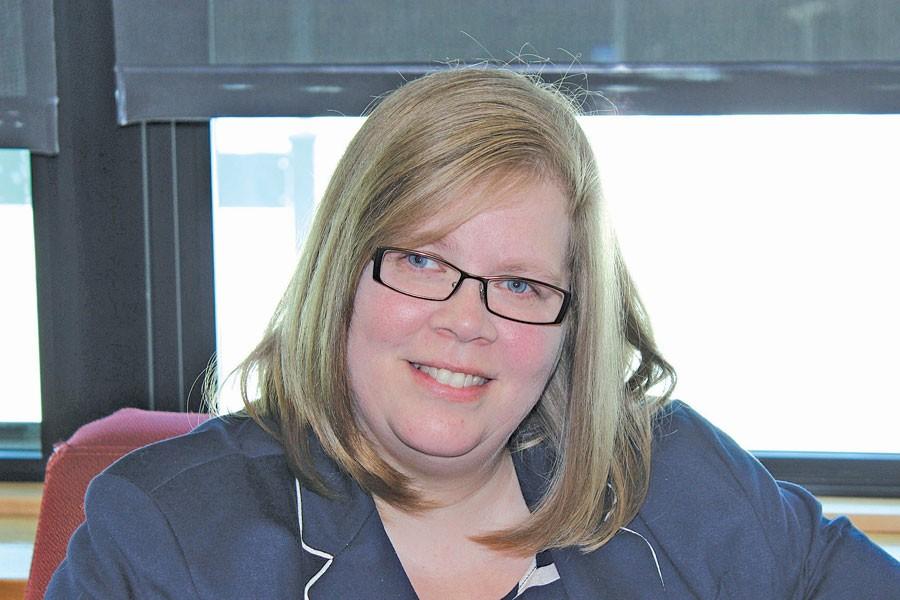Cable for wifi: a good exchange?
Sharron Scott
Over the course of the summer, cable connections in the residence halls at Johnson State College were removed, in order to install better wireless internet connections, says Sharron Scott, dean of administration and chief technology officer for JSC.
However, recently the college has been experiencing problems with the wireless access and connectivity. Late on Friday, Sept. 25, connectivity issues began to crop up, and they continued until mid-morning the following Monday.
“My understanding is that there was an issue with the wireless controller,” said Scott. “We have two versions of the controller; we have a controller that controls about 55 new wireless access points that were installed this summer, and then we have an older controller. And the two weren’t talking to each other.”
Since there is an age gap between the two controller systems, communication and relay of data passed back and forth is not always perfect. “It’s a matter of identifying specifically how we can make sure that the two sets of controllers have separate devices on them,” said Scott.
The residential cable was removed in favor of new access points, because the college has found that when asked, students used the internet for entertainment far more than cable. “The cost for 50-55 access points, plus a controller is about $50,000, and that’s about what it cost us for cable for a year. It didn’t save us any money [to switch], but it allowed us to be able to increase wireless,” said Scott.
It isn’t just the entertainment that gets lost when the internet goes down. “A lot of classes campus wide use Moodle for the majority of homework and class work, and online forums,” said JSC sophomore Hayley May. “So it makes it very difficult to do the homework and to keep on task and be timely with our work when we’re not able to access the internet.”
Even though there are two sets of wireless controllers at JSC, the college actually uses a wide-area network, connected to the VSC chancellor’s office. This means that JSC doesn’t directly get internet from a company; it comes down the line from another location.
“Where we do have some difficulty is in our connection from here to that point,” said Scott. “Once it gets there, there is lots of redundancy. Here, there is a little less redundancy, because there’s not a whole lot of providers that come out to Johnson.”
Students living in the residence halls say that they believe wireless internet connections have gone down in quality from what they were last year. Ben Simone, a resident assistant in Senator’s Hall, said that the internet connectivity this year is performing “rather poorly.”
“It’s slower than last year,” said student Anna Hughes.
“It’s very inconsistent,” said Shelby Salomaa, a senior at JSC. “I feel it’s supposed to be better this year, but it’s the worst it’s ever been,”
“I think they could definitely improve it, just so it’s stable,” said Lori Molin, a senior.
“Even with good fiber,” says Scott, “someone cuts that line, we’re kind of toast. We do have a good connection, it’s just…road construction and other things happen.”



